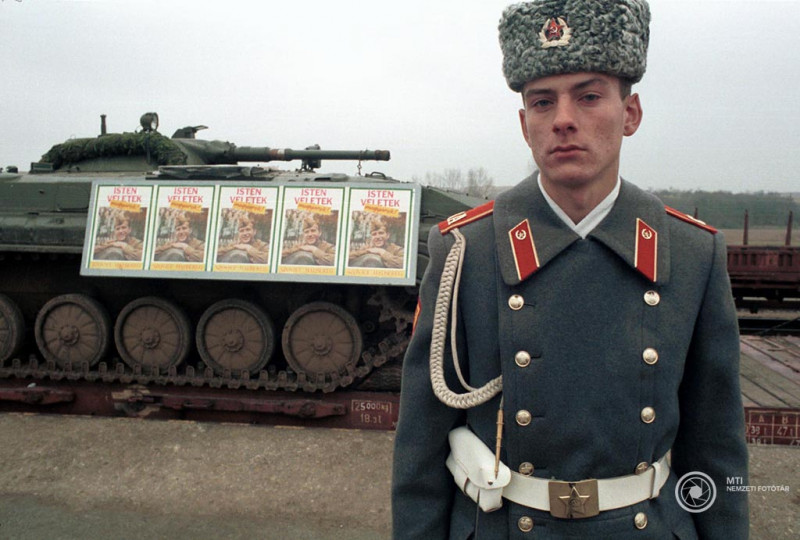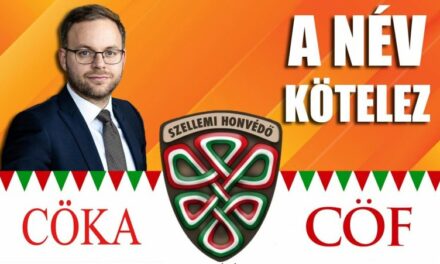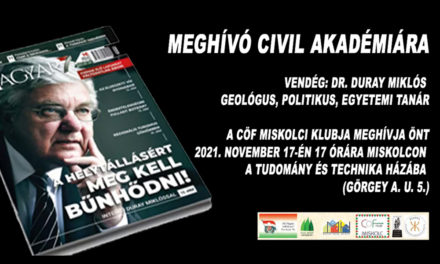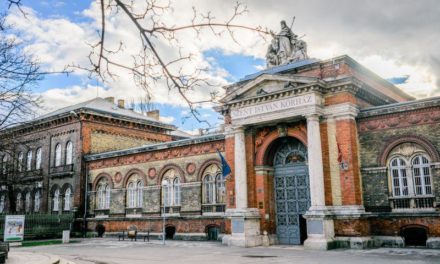The Civil Solidarity Forum - Civil Solidarity Non-profit Foundation (CÖF-CÖKA) recommends that June 19th be a national holiday and also a non-working day, the day on which the last Soviet soldier left Hungary in 1991.
Tamás Fricz , curator of the CÖF, said at the NGO's press conference in Budapest on Tuesday: the importance of June 19 can be compared to "the two shining days of our history", March 15 and October 23.
"June 19 can be a national holiday that can be a symbol of our independence and freedom, which is not only temporarily won, but permanently acquired and still alive today," he said.
He stated: this sovereignty can be attacked again and again "from a wide variety of geopolitical and global directions", therefore protecting it is "our basic duty".
June 19, or the last Saturday in June, is currently Hungarian Independence Day, a national day of remembrance, but not a public holiday - pointed out Tamás Fricz, who suggested that we should not celebrate on the last Saturday of June, "within the framework of a kind of relaxed picnic", but really on June 19, and it should be a public holiday.
Among the arguments for his proposal, he mentioned that June 19 has not received enough attention in the last 30 years. The political scientist named one of the main reasons for this, that during the years of the regime change, there was no clear separation from the previous dictatorial regime. "There was no historical justice and lustration, post-communism stayed with us for at least 20 years, which also cast a shadow on June 19, 1991," he said.
According to Tamás Fricz, it is important to separate the memorial day of June 16 and June 19 from each other. In 1989, the reburial of Prime Minister Imre Nagy and his fellow martyrs was held on the former day in Hősök Square, he recalled, adding: the two memorial days are not equal and "only June 19 is worthy of becoming a national holiday".
The political scientist believes that the symbolism of June 16 is "controversial to say the least", since "at the reburial, the opposition parties finally agreed to stand shoulder to shoulder with the communists in front of the erected graves". With this, he said, the opposition at the time sent a message that the regime change in Hungary must be carried out with party-state leaders, those who crushed the revolution.
Tamás Fricz emphasized: "the event with a disappointing message" was the only event that seriously symbolized the regime change was the speech of Viktor Orbán, the leader of Fidesz, in which he called for the withdrawal of the Soviet army from Hungary and "thereby demanded a real regime change". "Viktor Orbán's speech was the only one that went against the deal made between the party-state and the opposition," he said.
He added that in contrast to June 16, June 19 was a moment without bargaining and compromise, which gave effect to the two most important wishes of Hungarian history: "the regaining of national independence and sovereignty, and liberation from the communist dictatorship."
László Csizmadia , the president of CÖF-CÖKA, spoke at the event, among other things, about how the opposition launched an "unholy war" against the procurement and administration of Eastern vaccines. László Csizmadia, on behalf of the CÖF-CÖKA, which takes the opposite position, thanked Russia and China that, as he put it, thanks to them, Hungary is among the first in Europe and the world in terms of vaccination.
He said: "In Brussels, the lobbying mafia with liberal party interests paid by multinational pharmaceutical companies has prevailed", and the double standard has already gained ground in relation to the authorization of vaccines. At the same time, he urged stronger criminal law action against those who risk the health and lives of the Hungarian people for political gain. "The left's unbridled flow of lies and anti-vaccination currently knows no bounds," he asserted.
Zoltán Lomnici Jr. , the spokesperson of CÖF-CÖKA, announced at the press conference that a series of conferences on the future of the European Union will be launched, within the framework of which citizens with national sentiments can express their views on important political, economic and social issues. The aim of the initiative is to create a broad discussion forum on the basis of which EU decision-makers can draw political conclusions on issues determining the future of the EU, he added. According to his opinion, the conference can be a milestone in the competition between the concept of Europe of nations and European federalism.
He touched on: within the framework of the series, CÖF-CÖKA will draw attention to the lack of democratic control over EU institutions, the unsustainability of the current neoliberal economic direction, the demographic crisis, the failure of the integration of immigrants, and the EU's foreign policy, which they consider to be flawed, as a result of which the EU is becoming more and more weightless in the international arena, and they want to address the issue of climate protection as well, representing the position of the Hungarian government.
MTI
Cover photo: The launch of the last Soviet military formation from Hajmáskér (November 13, 1990) (MTI Photo: Gábor Arany)













